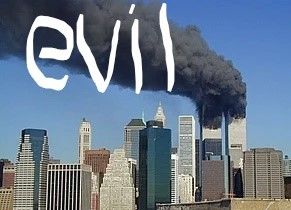
I’m putting this blog together on the 20th anniversary of the destruction of the twin towers in New York. For some days already that has been commented on in the media. I guess the numbers 9/11 will forever be linked to that day when terrorists flew two passenger planes into the World Trade Towers and a third one into America’s Pentagon building.
So why is this horrible event still commemorated twenty years later? Wouldn’t it be best to just try to forget what happened? Well, I guess that for the thousands of people who lost loved ones it’s good to pause and think about missing family members who were the victims of that tragedy. It’s also worth pausing to reflect on the courage of those who gave their lives… the firemen who did their best to save people but who didn’t make it home that night. Or the courage of the men who stormed the pilot’s cabin in a fourth plane, to wrestle the controls from the terrorists who had hijacked it. Their courage and sacrifice prevented another disaster.
But there’s another reason why that event is worth commemorating today. Many have argued that here, for the first time, modern society faced an undeniable example of evil. For a previous undeniable example of evil we would probably need to go back to the Nazi Holocaust of the Second World War – Hitler’s final solution for the Jews. Okay, there have been many other atrocities since then. We could think, for example, of the genocides in Rwanda and Bosnia. Yet it was the nature of what happened in New York that marks it as an unmitigated evil. Four plane loads of people; where folk settled back to enjoy their flight, thinking of family they were about to visit or business they were about to conduct – but within hours most of them were incinerated in a blast that reverberated around the world.
The 9/11 event certainly raises the issue of evil. But how do you define evil? The Oxford dictionary describes evil as that which is profoundly immoral and wicked. But defining evil is actually quite a contentious matter. What is an evil for one could be a great good for others. For example, euthanasia, or assisted dying, is seen as a great good by some folk. Others resist it as an evil that our society should shun. The same could be said for abortion. But who would deny that the 9/11 event was a great evil? To use the Oxford dictionary’s definition: surely the attack on the twin towers on 9/11 was profoundly immoral and wicked. But hang on a moment! Were there not some places in the world where celebration and rejoicing were the response to 9/11? Those who regarded the US of A as the ‘Great Satan’ did not see 9/11 as a great evil. Think about it: if your view is that Western Society – especially as it is personified in the US – is a perverse capitalistic and colonial system then you might well rejoice over 9/11. So doesn’t that make the definition of good and evil depend very much on one’s view of the world?
I noticed that the Oxford Dictionary’s definition of evil has a few additional words. It does not just say that evil is profound immorality and wickedness. The words it adds are these: especially when that immorality and wickedness “are regarded as a supernatural force”. That’s a very telling addition. It’s an allusion to the demonic. That transfers the whole discussion of our definition of good and evil into the spiritual realm. So when all is said and done good and evil are not relative terms that hinge on our views about those who are the victims or the perpetrators of a catastrophic event like 9/11. Ultimately the Bible reminds us that God defines what is good and God defines what is evil. In the Bible God has given us some boundary markers to help us distinguish good and evil.
More amazingly it tells us the story of the greatest evil that became the greatest good. The trial and execution of the sinless Son of God is surely the greatest evil ever. But the good news is that God turned that into the greatest good: through Jesus’ death came our forgiveness and the hope of the new creation when He returns.
John Westendorp
